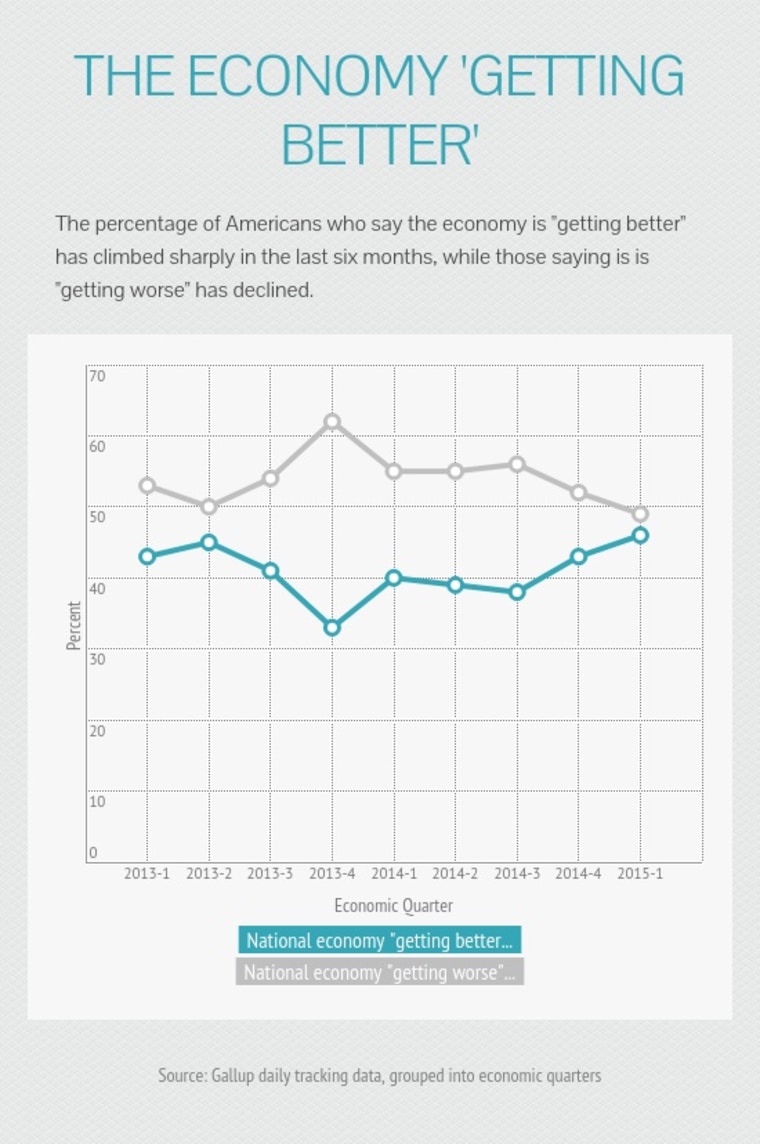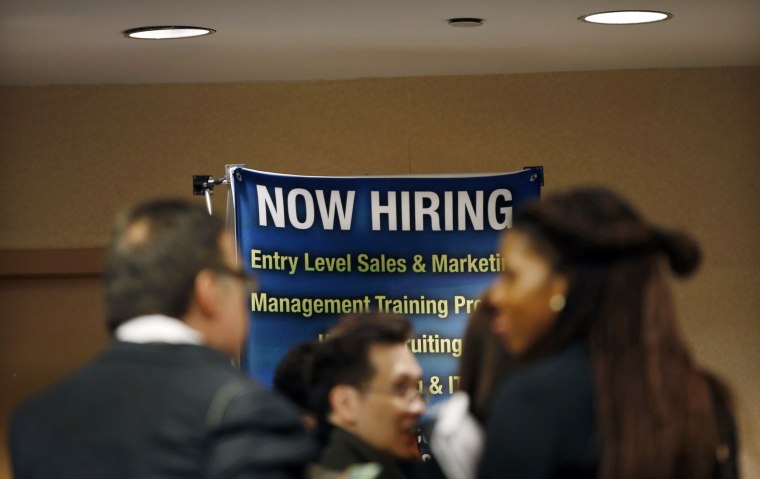For the last eight years the state of the economy – and the need to fix it – has been front-and-center in American politics. As the next presidential race begins, it may be time to consider whether that will still be the case in 2016.
The improvements since 2008 are immense. Unemployment is down sharply and now at pre-2008-election levels. The foreclosure crisis has come and gone. The Dow Jones Industrial Average is at or near record highs depending on the day.
More importantly, poll numbers suggest Americans are actually feeling better about the economy -- a critical measurement point in politics where voters' perceptions can be more important than the actual economic indicators.
Daily polling data from Gallup gathered throughout the first quarter of 2015 suggests the beginning of this year may have been a turning point. The numbers covering January to March show 46 percent of Americans believe the economy is “getting better” while 49 percent still believe it is getting worse.
Yes, the “getting worse” number is still higher, but only by three percentage points and the figures were an enormous improvement over last year’s numbers, as you can see on this chart.

In the fourth quarter of 2014, only 42 percent believed the economy was getting better and 52 percent believed it was getting worse – a difference of nine points. In the third quarter 38 percent believed the economy was improving while 56 percent believed it was getting worse – a difference of 18 points.
In fact, the 49 percent “getting worse” number in first quarter of 2015 is the lowest that figure has been since the 2008 election. The “getting worse” number got down to 50 percent in the second quarter of 2013, but after the drama in Washington with the government shutdown in the fall it quickly rose to 54 percent in the third quarter and 62 percent in the fourth.
Following these increasingly good feelings about the economy has been a noticeable increase in the percentage of Americans who say they approve of the way President Barack Obama is handling the economy. In the latest NBC News/Wall Street Journal poll, 49 percent said they approved of Mr. Obama’s economic stewardship and 47 percent said they disapproved – a net positive of two points.
In November of 2014, only 43 percent approved and 53 percent disapproved, a net negative of 10 points. And that wasn’t an outlier. Mr. Obama was a double-digit net-negative on the economy through all of 2014 up to November.
Get NBC News’ 2016 newsletter “The Lid” straight to your inbox every afternoon -- click here to sign up.
In December, attitudes began to thaw and the poll showed he was only a 3-point net negative. That thaw seems to have gained momentum.
If America’s economic optimism is truly growing it could have big impacts on 2016. Who gains if “we need to fix the broken economy” is no longer driving issue of the campaign? Both sides have arguments.
The economy is not suddenly going to disappear from the 2016 debate, but the discussion could morph into one that works for Republicans, if it shifts to become more focused on issues like “government spending” and “deficits.”
Democrats, however, would seem to hold the better hand. After all, any optimism would occur on the watch of Mr. Obama and the Democratic nominee could campaign to the strains of “Happy Days are Here Again” – or at least happier days.
The presidency is a complicated office. The White House ultimately has only limited control over things like unemployment and GDP growth – and it has less control in the increasingly global economy of 2015 than it did 20 or 30 years ago. But man who lives there usually gets the credit or the blame for whatever happens on his watch.
Regardless of where the economic debate goes, however, pessimists shouldn’t be alarmed.
In the latest NBC News/Wall Street Journal poll only 28 percent of Americans said the country was on the “right track,” while 62 percent said it was on the “wrong track.” People might be feeling better about the economy, but there is still plenty of angst to go around for 2016.
